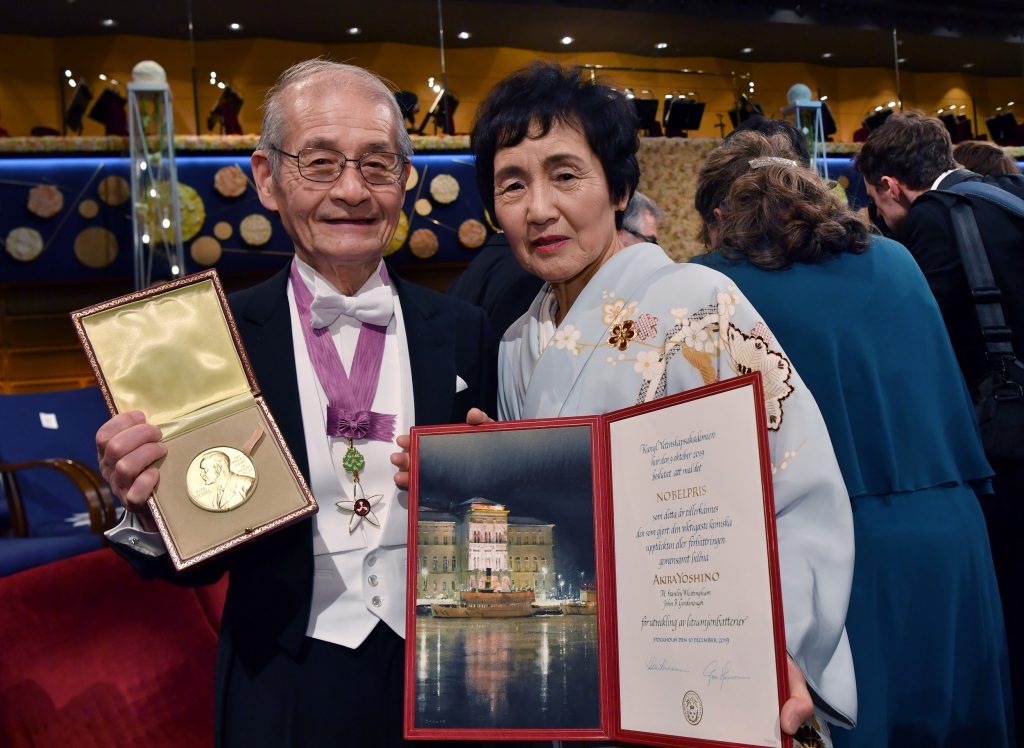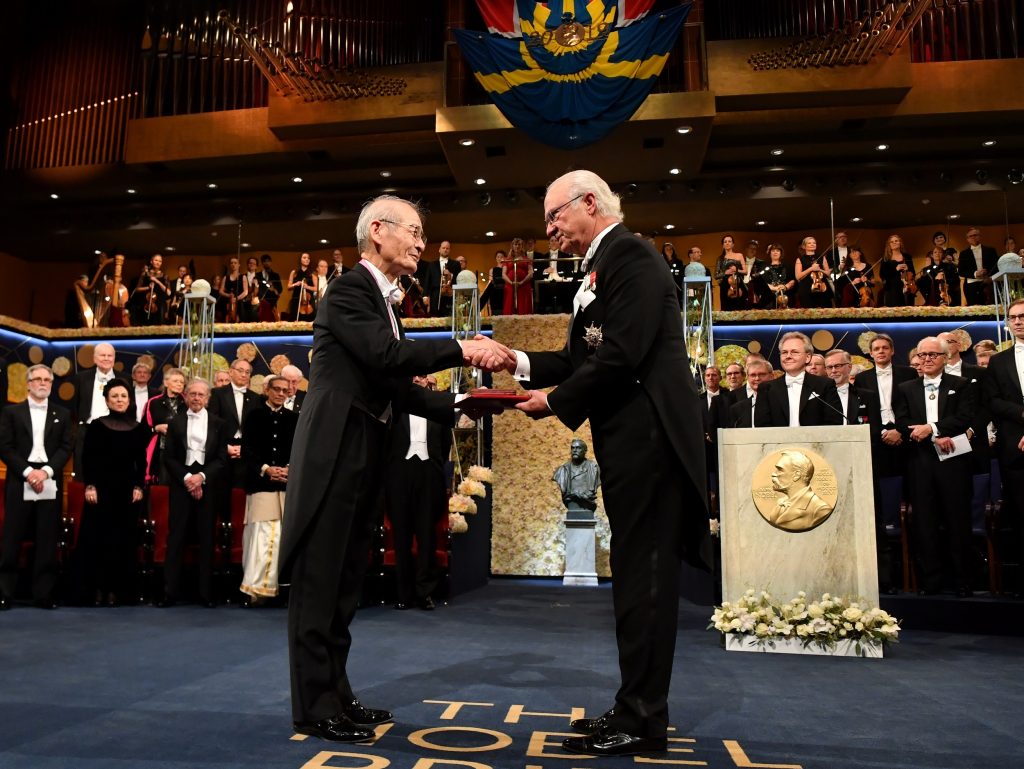



Stockholm
Japanese scientist Akira Yoshino, 71, received the 2019 Nobel Prize in Chemistry, together with two cowinners, at an award ceremony in Stockholm on Tuesday, for their contributions in the development of lithium-ion batteries.
Yoshino, honorary fellow of Japanese chemical maker Asahi Kasei Corp., received the Nobel Prize medal and award certificate from Swedish King Carl XVI Gustaf.
After entering the venue, Yoshino smiled when he found his wife, Kumiko, 71, in the audience. As he received the medal and the audience gave him thunderous applause, he nodded looking satisfied.
“I feel great,” Yoshino said after the ceremony. The medal “felt very heavy,” he also said.
https://twitter.com/NobelPrize/status/1204471731974475782?s=20
Yoshino and his wife attended the Nobel Banquet at Stockholm’s City Hall later in the day. After returning to their hotel, Yoshino said, “I’m finally beginning to feel the award as real.”
He is scheduled to leave Stockholm on Saturday and return home on Sunday morning local time.
His two cowinners are John B. Goodenough, 97, of the University of Texas and M. Stanley Whittingham, 77, of Binghamton University, State University of New York.
In 1983, Yoshino created a prototype of a lithium-ion battery using polyacetylene, a type of conductive plastic, for the negative electrode and lithium cobalt oxide for the positive electrode.
Two years later, he replaced polyacetylene with a carbon material and successfully established the basis for lithium-ion batteries.
Whittingham proposed the idea of batteries using lithium in the 1970s, while Goodenough discovered that lithium cobalt oxide is suitable for the positive electrode in a lithium-ion battery in 1980.
The lightweight, rechargeable batteries with high energy density, utilized in laptops, mobile phones and smartphones, have played a significant role in the information technology revolution.
Yoshino is the 27th Japanese Nobel laureate, following Tasuku Honjo, 77, professor at Kyoto University, who received the 2018 Nobel Prize in Physiology or Medicine for his achievements that paved the way for cancer immunotherapy.
Jiji Press